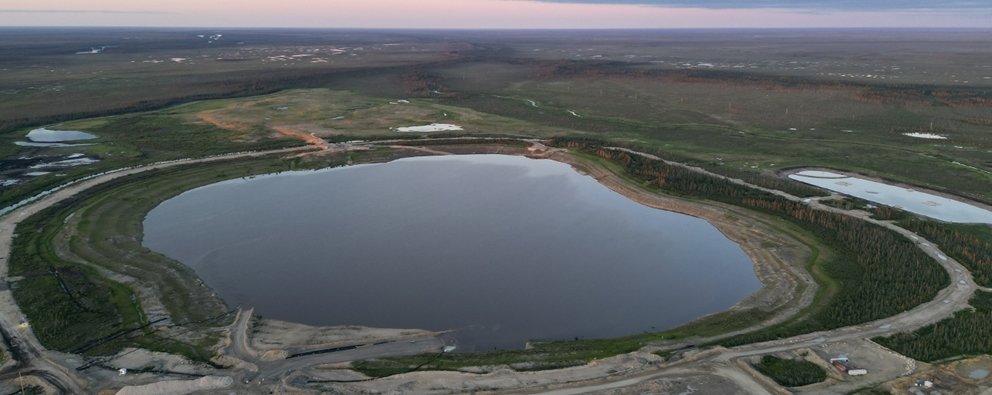News from our businesses and markets
News from our businesses and markets

De Beers Group is proud to announce that it is the recipient of the 2022 Tom Peters Memorial Mine Reclamation Award, presented by the Ontario Chapter of the Canadian Land Reclamation Association (CLRA), for work now underway to close Victor mine.
The Victor Mine is located in the James Bay lowlands in Northern Ontario and operated between 2008-2019. By the end of 2023, Victor Mine is expected to be the first diamond mine in Canada to complete active closure.
The Award has been presented regularly since 1987 to recognize outstanding achievement in the practice of mine reclamation in Ontario. Tom Peters was a founding member of the CLRA and a pioneer in Canadian mine reclamation. The award was founded following Peters’ death and is intended to encourage the pursuit of excellence in mine reclamation. The award is expected to be formally presented later this year.
Moses Madondo, Managing Director of De Beers Group Managed Operations, said: “Our goal in closing Victor mine has always been to return the site to a natural state that is safe for people and animals. We are grateful for this award because it recognizes the long history of work and collaboration with Indigenous communities and regulators to develop a closure and reclamation plan that enables the responsible closure of Ontario’s first and only diamond mine.”
The Victor mine site is situated within a wetland complex and constructed mine rock pads had to be built to facilitate a full-scale 24/7 mining operation. To reclaim these features, a mirrored approach to Mother Nature in terms of shaping and deposition sequence to ensure long-term stability and allow passive sustainable function was implemented. Nearly a decade of university-led research programs to examine a multitude of aspects for mine closure have been completed.
Progressive reclamation began in 2014 with establishment of an Attawapiskat First Nation youth-based seed collection program to harvest seeds from the region and overcome the lack of commercially available and climate adapted stock. This work continued until 2019, providing the source for more than 1.4 million trees and shrubs planted on the site. Many of these seedlings were grown on-site in a state-of-the-art processing facility, hydroponic germination chamber, greenhouse, and outdoor nursery.
There are no traditional soils so a “technosol” was created using natural materials salvaged during mine construction, including a mixture of overburden and peat. Fertilizers were not used in the process as pioneer vegetation species were targeted instead.
To accelerate natural recovery, dewatering systems were reversed in closure to refill the pit with water in less than two years. Over 35 ha of aquatic habitat has been created using bioengineering in place of synthetics, and floating wetland complexes to improve habitat. Other innovations included use of an agricultural drone to seed large areas of the site, satellite monitoring for stability, and use of aerial imagery to scan plant health.
Throughout demolition and closure, partnerships were formed with local communities to reallocate and repurpose all salvageable materials, including donation of fire trucks to Attawapiskat and Moosonee. Joint ventures for recycling were formed with First Nations partners resulting in over 600 truckloads of materials being salvaged from the site and transported to recycling facilities, with some of the proceeds going to benefit community development projects. The closure and reclamation for Victor mine was the result of ongoing collaboration between De Beers, the Attawapiskat First Nation (AttFN), other communities in the region, and regulators.
Following the end of active closure, long-term monitoring will continue until at least 2039. Throughout construction, operations, and closure, the community had an on-site environmental monitor and De Beers looks forward to continuing this relationship during post-closure monitoring.
De Beers employs more than 600 people in Canada. It is the operator of the joint venture Gahcho Kué mine in the Northwest Territories (NWT), actively closing Snap Lake mine in the NWT, has an active exploration team searching for new diamond deposits in Canada, and is advancing the Chidliak Project to establish a technologically advanced diamond mine on Baffin Island using FutureSmart Mining™ principles.

